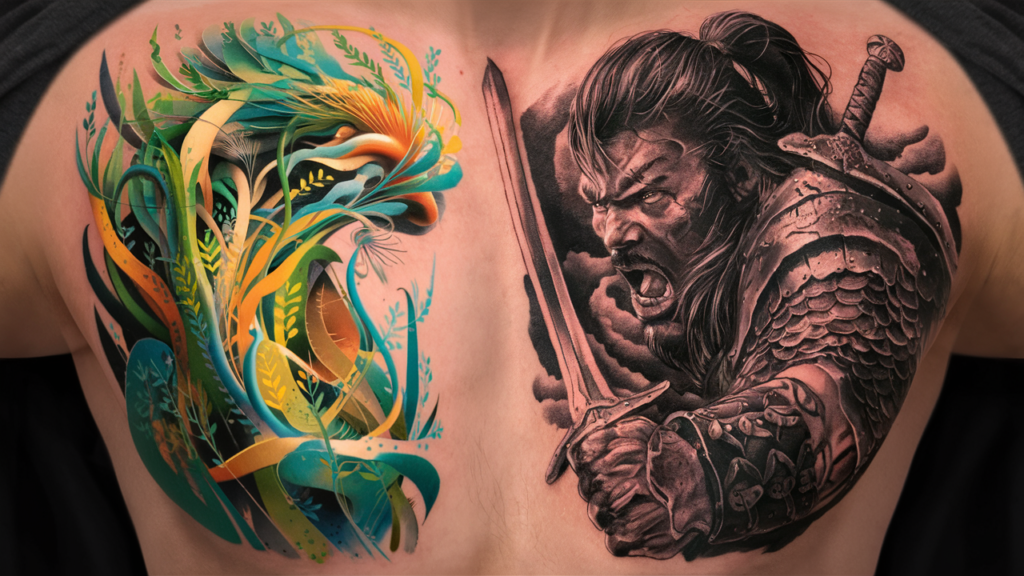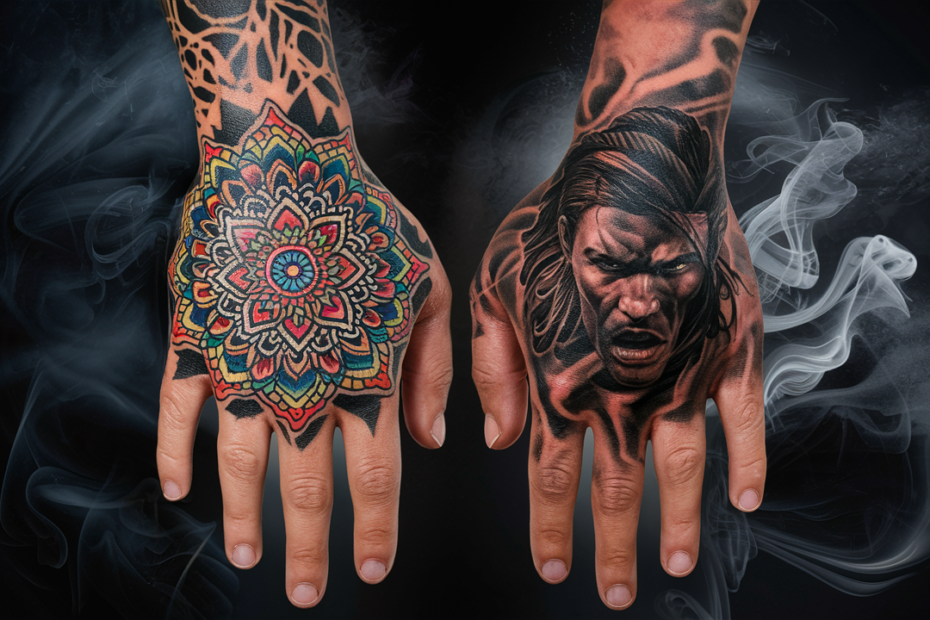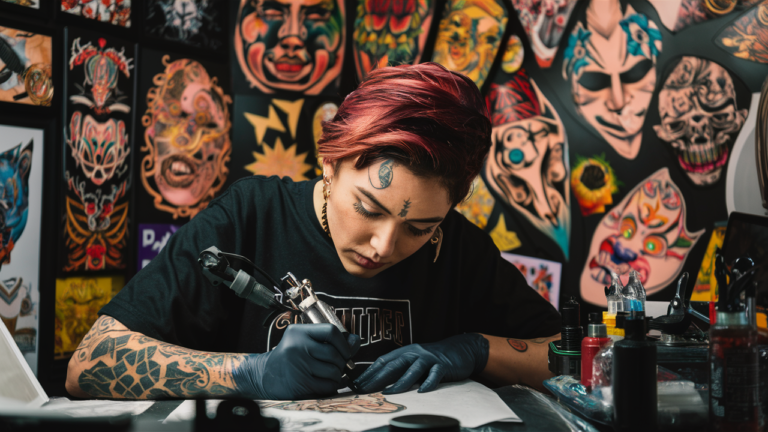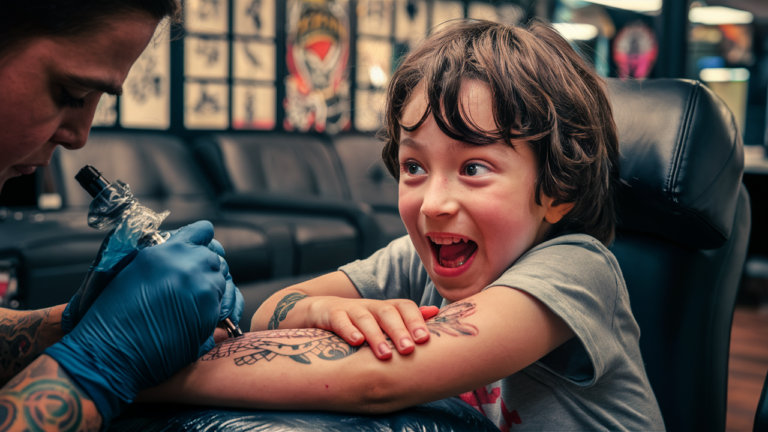Getting a tattoo is a deeply personal and often lifelong commitment. Choosing the right design is crucial as it reflects your personality, experiences, and values. With countless options available, it can be overwhelming to settle on the perfect design. This guide will walk you through the process of selecting a tattoo design that you’ll cherish forever.
Understanding Your Motivation
Personal Meaning and Significance
The first step in choosing a tattoo design is understanding why you want one. Is it to commemorate a significant event or person in your life? Is it a form of self-expression? Reflecting on your motivations will help you narrow down designs that hold personal significance.
Trends and Influence
While it’s tempting to follow current tattoo trends, remember that trends change. A design that’s popular today might not be in a few years. Instead, focus on what resonates with you personally.
Researching Tattoo Styles
Traditional vs. Modern Styles
Tattoo styles range from traditional to modern. Traditional styles often feature bold lines and classic imagery, while modern styles can include anything from watercolor to geometric designs. Understanding these styles can help you determine what appeals to you.
Popular Tattoo Styles Explained
- Traditional: Bold lines, classic designs like roses, anchors, and pin-up girls.
- Realism: Highly detailed, lifelike images, often portraits or nature scenes.
- Watercolor: Soft, gradient colors mimicking watercolor paintings.
- Geometric: Abstract shapes and patterns, often symmetrical.
- Japanese: Traditional Japanese motifs like dragons, koi fish, and samurai.

Finding Inspiration
Personal Experiences and Stories
Many people choose tattoos that represent their personal journey. This could be a symbol of overcoming adversity, a tribute to a loved one, or a reminder of a life-changing experience.
Cultural and Historical Inspirations
Cultural and historical symbols can provide rich inspiration for tattoo designs. Consider elements from your heritage or historical icons that resonate with you.
Nature and Art
Nature offers endless inspiration with its diverse flora and fauna. Similarly, art—from classical paintings to contemporary illustrations—can spark ideas for unique designs.
Consulting with a Tattoo Artist
Importance of Professional Advice
A professional tattoo artist can provide valuable insight into what designs work best for tattoos. Their experience ensures that the design is not only visually appealing but also technically feasible.
How to Find a Skilled Tattoo Artist
Look for artists with a strong portfolio that matches the style you’re interested in. Reading reviews and getting recommendations from friends can also help you find a reputable artist.
Collaborating on Design Ideas
Bring your ideas and inspirations to your consultation. A good artist will collaborate with you to refine your concept and create a custom design that meets your expectations.
Considering Placement and Size
Impact of Body Placement on Design
Where you place your tattoo affects both the design and the pain level. Consider areas that allow for visibility or concealment based on your preference and lifestyle.
Choosing the Right Size for Your Tattoo
The size of your tattoo should complement the placement. Larger designs require more space, while smaller, intricate designs can fit in more discreet locations.
Sketching and Visualization
Creating Preliminary Sketches
Sketching your ideas can help visualize the final design. You don’t need to be an artist—simple sketches can convey your concept to your tattoo artist.
Using Digital Tools for Visualization
There are various apps and software available that allow you to visualize how different designs will look on your body. These tools can help you make more informed decisions.
Ensuring Originality
Avoiding Copycat Designs
While it’s okay to draw inspiration from existing tattoos, copying someone else’s design is generally frowned upon. Aim to create a unique design that reflects your individuality.
Adding Personal Touches to Make It Unique
Incorporate elements that are meaningful to you. This could be a particular symbol, date, or quote that adds a personal touch to your tattoo.
Balancing Aesthetics and Meaning
Harmonizing Visual Appeal with Personal Significance
The best tattoos balance aesthetics with personal significance. Choose a design that looks good and holds deep meaning for you.
Examples of Well-Balanced Designs
Consider designs that integrate meaningful symbols into visually pleasing compositions. For example, a heart with initials can be stylish yet personal.
Understanding the Long-Term Commitment
Thinking About Future Changes and Aging
As your body changes with age, so will your tattoo. Consider how the design will look in the long term and whether it will age well with you.
Permanent vs. Temporary Tattoos
If you’re unsure about committing to a permanent tattoo, consider starting with a temporary one. This allows you to test the design before making it permanent.
Tattoo Design Trends
Current Trends in Tattoo Designs
Current trends include minimalistic designs, single-line tattoos, and abstract art. While trends are fun, ensure the design you choose will stand the test of time.
Timeless Tattoo Styles
Timeless styles like traditional or Japanese tattoos remain popular regardless of changing trends. These designs are often deeply rooted in history and culture, giving them lasting appeal.

Seeking Feedback and Opinions
Getting Input from Friends and Family
While the final decision is yours, getting feedback from trusted friends and family can provide new perspectives and help you refine your choice.
Considering Constructive Criticism
Constructive criticism can be valuable. Listen to feedback, but make sure the final decision aligns with your vision and values.
Budgeting for Your Tattoo
Cost of Designing and Getting a Tattoo
Tattoo costs vary based on size, complexity, and the artist’s experience. Be prepared to invest in your tattoo to ensure quality and satisfaction.
How to Save Without Sacrificing Quality
Look for promotions or consult multiple artists to compare prices. However, never compromise on quality to save money. A well-done tattoo is worth the investment.
Finalizing Your Decision
Taking Time to Reflect Before Committing
Take your time to think about the design before making a commitment. It’s better to wait and be sure than to rush into a decision you might regret.
Ensuring Complete Satisfaction with Your Choice
Before your appointment, make sure you are 100% happy with the design, placement, and artist. This will give you confidence and peace of mind.
Preparing for Your Tattoo Appointment
What to Expect During the Tattooing Process
Understand the process, from initial sketching to the final inking. Knowing what to expect can ease anxiety and make the experience more enjoyable.
Aftercare Tips for a Fresh Tattoo
Proper aftercare is crucial for healing. Follow your artist’s instructions to ensure your tattoo heals well and remains vibrant.
Conclusion
Recap of Key Points
Choosing a tattoo design involves careful consideration of personal meaning, aesthetic appeal, and long-term commitment. By taking the time to research, consult with professionals, and reflect on your decision, you can select a design that you’ll love for years to come.
Final Thoughts on Choosing a Tattoo Design
Ultimately, the best tattoo design is one that resonates with you personally and aesthetically. Trust your instincts, do your research, and collaborate with a skilled artist to create a tattoo that is uniquely yours.
FAQs
How do I know if a tattoo design is right for me?
If the design resonates with you personally and you feel confident about it, it’s likely a good fit. Take your time to reflect and consult with your tattoo artist.
Can I change my tattoo design after the consultation?
Yes, most artists will allow changes before the final inking. Communicate any adjustments early to ensure they can accommodate your request.
How do I find a reputable tattoo artist?
Look for artists with strong portfolios, read reviews, and get recommendations from friends. A reputable artist will prioritize hygiene and client satisfaction.
What should I consider about tattoo placement?
Consider visibility, pain levels, and how the placement complements the design. Some areas may age better than others, so think long-term.
Are there any design limitations for tattoos?
Certain designs may not work well due to size, placement, or complexity. Consult with your artist to ensure your design is feasible and will look good over time.



